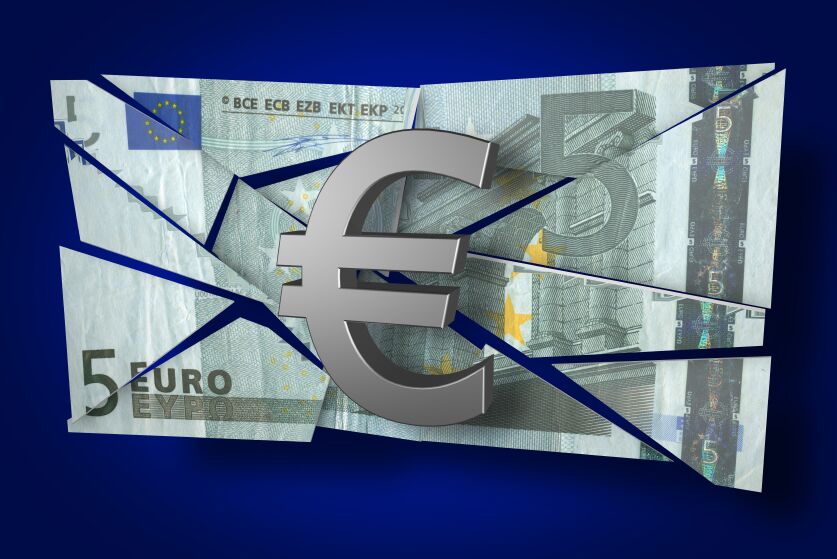
Europe Must ‘Face the Possibility of a Euro Breakup’
“We have to face openly the possibility of a euro-break up,” Finnish Foreign Minister Erkki Tuomioja said in an interview published by the Daily Telegraph on August 16.
“Our officials, like everybody else and like every general staff, have some sort of operational plan for any eventuality,” he said. Nobody—not even Finland’s euroskeptics, the True Finns—wants a breakup, “but we have to be prepared” he said.
A breakup “is what people are thinking about everywhere,” he said.
Ambrose Evans-Pritchard, who wrote up the interview, said that “Mr. Tuomioja’s intervention is the bluntest warning to date by a senior eurozone minister.”
Timo Soini, leader of the True Finns, is even blunter. “There are no rules on how to leave the euro but it is only a matter of time,” he said. “Either the south or the north will break away because this currency straitjacket is causing misery for millions and destroying Europe’s future.”
Even Tuomioja said he was worried that the eurozone’s unelected leaders were taking Finland in a direction it didn’t want to go. “I don’t trust these people,” he said, speaking of the “gang of four” who run the eurozone, including Mario Draghi, head of the European Central Bank.
One of Finland’s key demands is that if a nation goes bust, loans from the EU must be paid off before other debt. But this law means that once a country has been bailed out, few want to invest in it.
Tuomioja pointed to the fact that the eurozone is once again boiling to a crisis point. Greek newspaper Ekathimerini reports that Greek Prime Minister Antonis Samaras has scheduled a series of meetings, starting August 22, with head of the Eurogroup Jean-Claude Juncker, German Chancellor Angela Merkel and French President Francois Hollande. In these meetings he plans to plead for Greece’s bailout program to last two more years. The Financial Times reports that in order to finance this extension, Samaras won’t ask for more money, but instead ask that Greece not be required to pay back its first bailout until 2020, instead of 2014.
It could be that EU leaders compromise and once again put off a major crisis for another few weeks. But compromise is becoming increasingly difficult for the leaders of northern Europe. They’ve given away just about all the money their electorate will let them. Michael Fuchs, a senior leader in German Chancellor Angela Merkel’s Christian Democratic Union, said that Germany would veto giving any more money to Greece if they strayed from the requirements of their bailout package. “Germany has reached the limit of its capacity,” he said.
Germany’s deputy chancellor Philipp Rösler has made similar statements, adding that “an exit by Greece from the eurozone lost its horror a long time ago.” Christian Social Union (csu) chairman and premier of the state of Bavaria Horst Seehofer has even threatened to turn against Merkel over the bailouts. “The time will come when the Bavarian government and the csu can no longer say yes,” he said in an interview with Stern magazine July 3. “And the coalition has no majority without the csu’s seats,” he added.
Last month, Süddeutsche Zeitung wrote even the chancellor had had enough. They quoted an anonymous official saying it is “inconceivable that Chancellor Angela Merkel would again ask German parliament for approval for a third Greece bailout package.”
But it is inconceivable that Greece would get by without changing the terms of its bailout. With these strident statements, Germany’s politicians have left themselves very little room to compromise.
Finland’s foreign minister is wise to prepare for a euro breakout. The eurozone’s current structure means that it cannot last permanently. So far euro leaders have kicked the can down the road. This time, they don’t have much road left.
The eurozone will soon be forced to go through some shocking changes. In order to survive the crisis, many eurozone countries will rapidly pool their powers to create a new superstate. To read more about how the crisis will soon change Europe, read our article “The Fourth Reich Is Here.”
